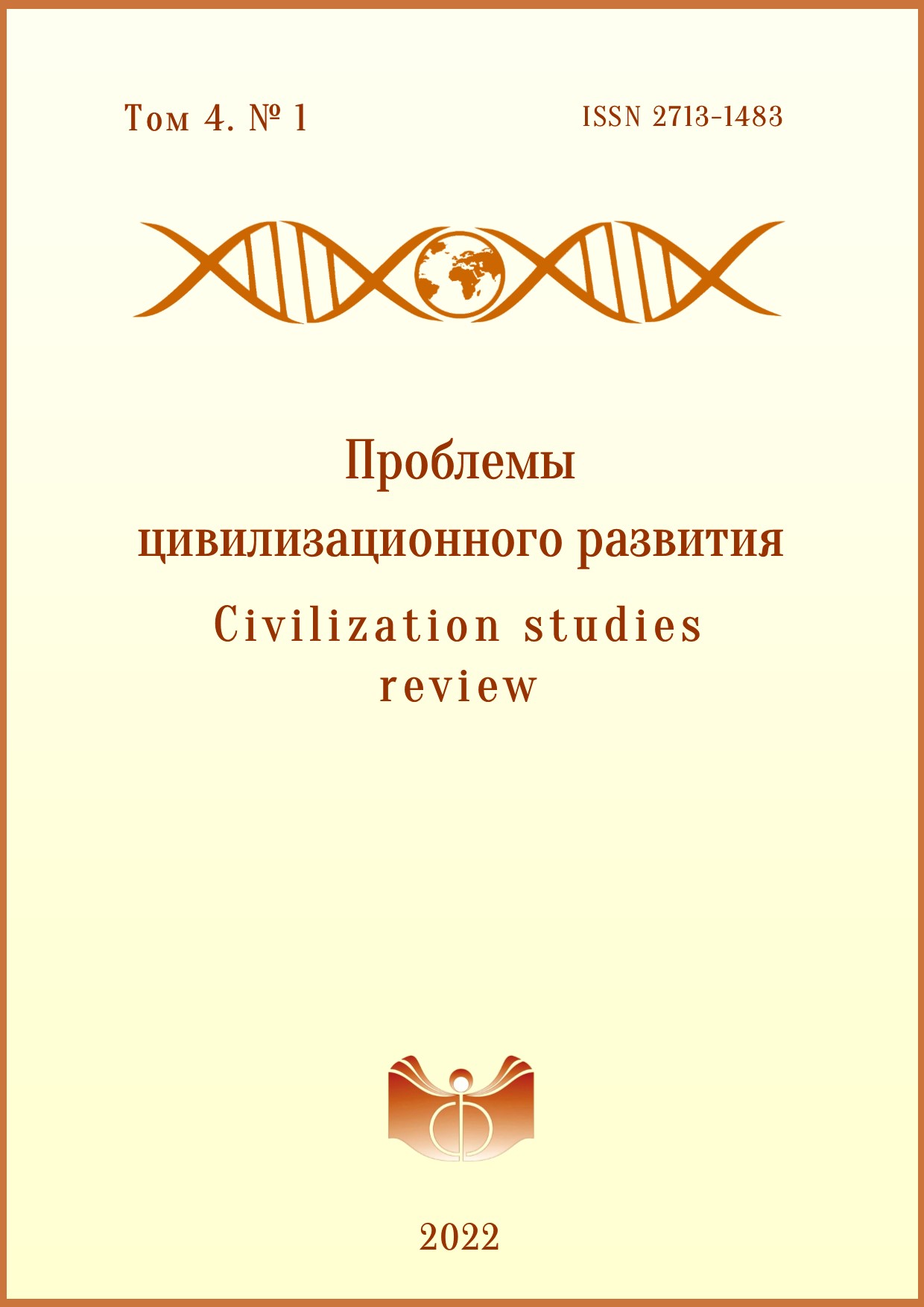Project of ecological civilization for Russia (natural basis and Chinese experience)
DOI:
https://doi.org/10.21146/2713-1483-2022-4-1-140-159Keywords:
civilization, Russia, China, civilizational project, project reconstruction, spirituality, reverence for life, transcendent, common cause, sophism, integralism, ideocracy, all-humanity, locality, ecology, ecological civilization, ecological ethics.Abstract
The article begins with clarifying the concepts used by the author in the analysis of various civilizational concepts presented by the philosophers of the past and present (“idea”, “project”, “project idea”, “project reconstruction”, etc.). The author reconstructs these concepts in relation to Russia, including ideas emphasizing the importance of the spiritual organization of life (G.W.F. Hegel, A. Schweitzer, S. Huntington), sophism, unity and integralism (N.F. Fedorov, V.S. Soloviev and P.A. Sorokin), all-humanity (N.Y. Danilevsky, N.S. Trubetskoy, A.V. Smirnov). None of the proposed concepts can be fully applied in the justification of the civilizational project of Russia. However, some ideas could form the basis of this project (spirituality and transcendence, orientation to life and common cause, sophistry and unity, ideocratic character and all-humanity).
Russia can embark on the path of becoming an ecological-type civilization. But in order to overcome Western centrism, it is important for her to take into account the Chinese experience in building an ecological civilization that is traditionally focused on the Great Harmony of the world. The environmental crisis in China has prompted the country’s political leadership to make informed strategic decisions, including measures to create eco-nature reserves, a roadmap for nature protection and a program for environmental education of citizens and, first of all, young people. But the main thing in this strategy is the implementation of a model of ecological modernization, which will lead to the formation of a “green” economy, corresponding to the logic of the culture of China itself.
All this to a certain extent can be used in the civilizational development of modern Russia and thereby contribute to its economic integration and cultural rapprochement with China. She, like the latter, needs to overcome the paradigm of “systemic exclusivity”, which allows domination over nature and progressive aspirations in relation to the entire environment, as well as to defend her ecological sovereignty.
The ecological paradigm makes it possible to integrate different concepts of the civilizational development of Russia. It proceeds from the principle of permissibility as the maximum possible intervention in the natural processes of the socio-natural environment, and also takes into account the factors of place, human proportionality, environmental friendliness, social solidarity, self-limitation of needs and moderate consumption, mobile intellectual environment, etc. In addition, the civilizational project should have an ethical and ecological justification, taking into account the ideological heritage of Russian philosophy and compliance with the criteria of reverence for life, moral harmony, professional selection of environmental subjects.

